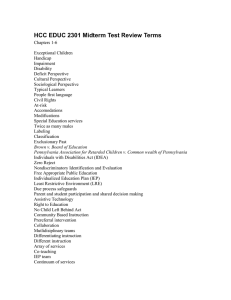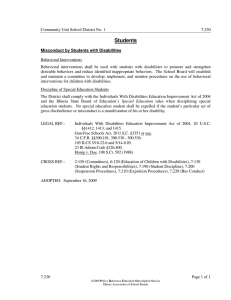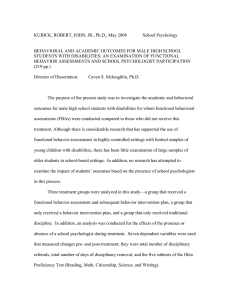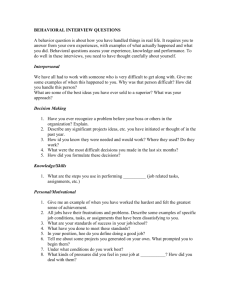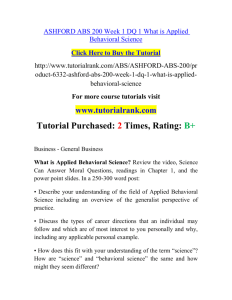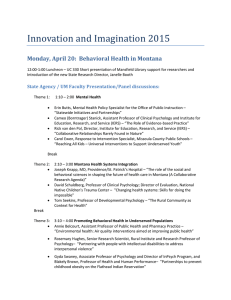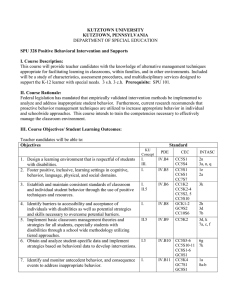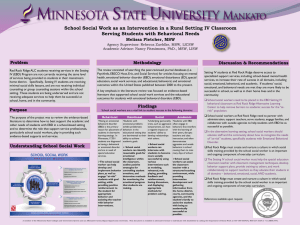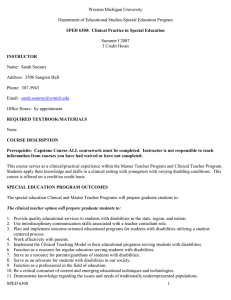Collaborative Teacher Graduate Comprehensive Exam Study Guide
advertisement
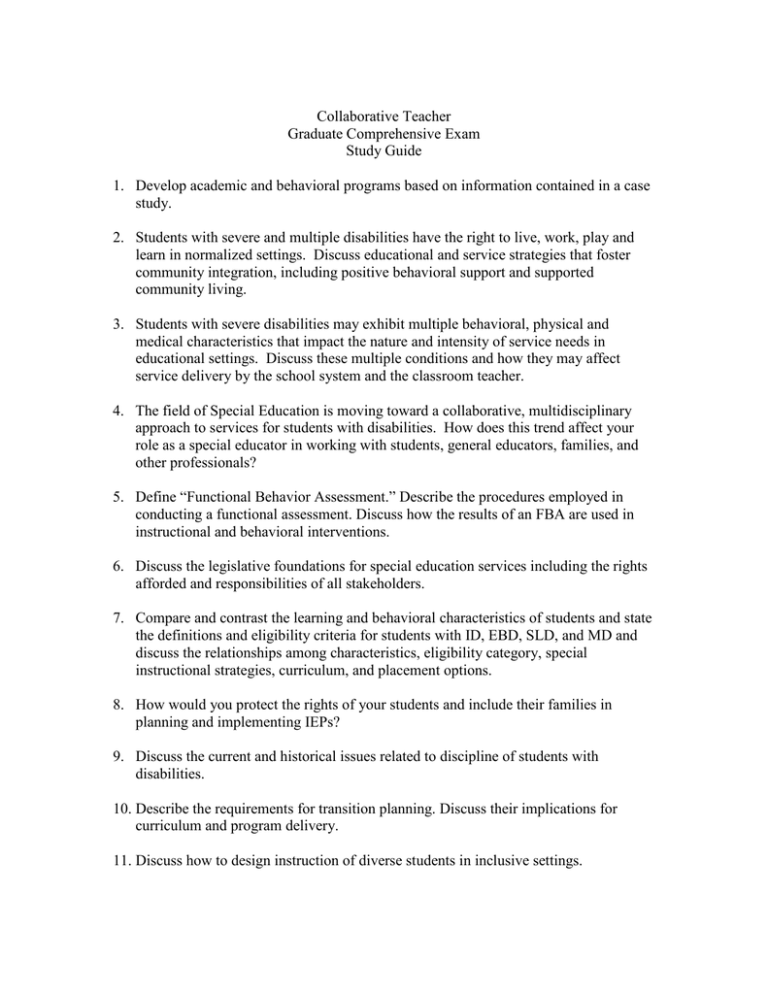
Collaborative Teacher Graduate Comprehensive Exam Study Guide 1. Develop academic and behavioral programs based on information contained in a case study. 2. Students with severe and multiple disabilities have the right to live, work, play and learn in normalized settings. Discuss educational and service strategies that foster community integration, including positive behavioral support and supported community living. 3. Students with severe disabilities may exhibit multiple behavioral, physical and medical characteristics that impact the nature and intensity of service needs in educational settings. Discuss these multiple conditions and how they may affect service delivery by the school system and the classroom teacher. 4. The field of Special Education is moving toward a collaborative, multidisciplinary approach to services for students with disabilities. How does this trend affect your role as a special educator in working with students, general educators, families, and other professionals? 5. Define “Functional Behavior Assessment.” Describe the procedures employed in conducting a functional assessment. Discuss how the results of an FBA are used in instructional and behavioral interventions. 6. Discuss the legislative foundations for special education services including the rights afforded and responsibilities of all stakeholders. 7. Compare and contrast the learning and behavioral characteristics of students and state the definitions and eligibility criteria for students with ID, EBD, SLD, and MD and discuss the relationships among characteristics, eligibility category, special instructional strategies, curriculum, and placement options. 8. How would you protect the rights of your students and include their families in planning and implementing IEPs? 9. Discuss the current and historical issues related to discipline of students with disabilities. 10. Describe the requirements for transition planning. Discuss their implications for curriculum and program delivery. 11. Discuss how to design instruction of diverse students in inclusive settings.
